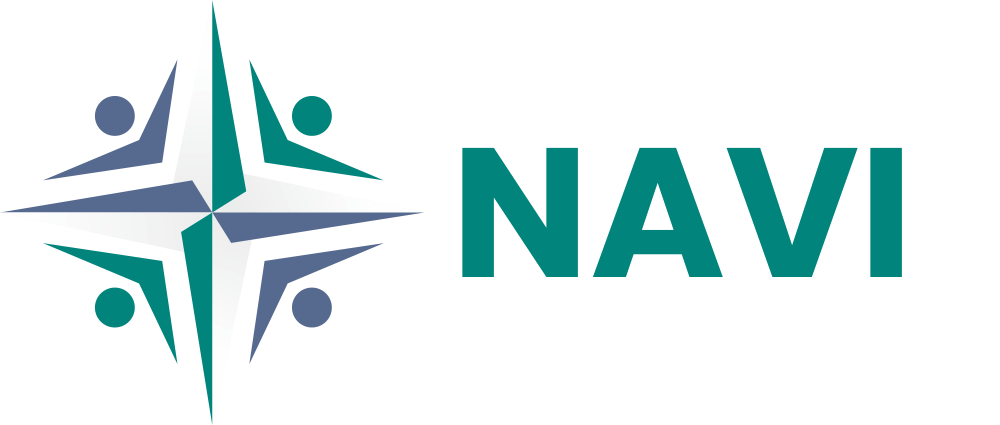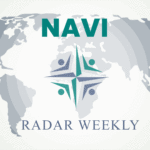Subscribe to NAVI Radar Weekly
Focus Point: Regional Security- Transatlantic Security/NATO
NATO to enhance military presence in the Baltic Sea | NATO
By NATO | 30.12.2024
Allies met today (30 December 2024) at NATO Headquarters to consult on the security of critical infrastructure in the Baltic Sea, following damage to undersea cables connecting Estonia and Finland on 25 December.
The damage to the cables, which is being investigated by Finnish authorities, is one of a number of recent incidents in the Baltic Sea under scrutiny as possible sabotage. Allies expressed full solidarity with Estonia and Finland in the wake of the recent incident. In order to maintain vigilance, increase situational awareness, and deter future incidents, NATO is enhancing its military presence in the Baltic Sea. Allies are also considering other measures to address potential threats to critical undersea infrastructure, including with the support of NATO’s Maritime Centre for Security of Critical Undersea Infrastructure that was established in May of this year. Read more…
Focus Point: Regional Security- Middle East
Syria’s U.S.-trained opposition fighters wait to learn of their role in a new Syria | NPR
By Jane Arraf | 31.12.2024
When Salim Turki al-Anteri took his opposition forces into battle against regime troops in southern Syria this month, it was against his own former tank unit.
Drawing on his past U.S. military training and his hopes for a united Syria, the commander ordered his forces to fire artillery warning shots, intended to persuade regime soldiers to abandon their tanks and leave the battlefield.
“We didn’t want to kill any soldiers,” he says of the battle on Dec. 7, a day before Damascus fell.
“We aimed to the left and to the right, and then closer to them,” he says. “We didn’t follow them because we knew that if we followed them, we would have to kill them.”
Unlike many military commanders who were regime loyalists, most ordinary soldiers were conscripts who’d been given no choice but to fight for Syrian President Bashar al-Assad, he says.
“I consider all the soldiers my sons,” he says. And he considered the tanks they fought in equipment to be safeguarded for the country’s army — whatever shape it may take in a post-Assad Syria. Read more…
Focus Point: Regional Security- European Security
Syrian Refugees in Germany Are Glad They Can Visit Home. But Just Visit | NYT
By Melissa Eddy | 31.12.2024 |Subscription needed
Upon learning that Syria’s dynastic dictatorship had fallen, Iman Mohammed, a Syrian refugee living in Germany, felt a surge of elation at the idea that she could return to her homeland.
But that joy quickly faltered as another thought occurred to her: Going back to Syria could mean giving up everything that she and her family had built in Germany since making the dangerous trek to arrive there nearly a decade ago.
“In the cold light of day, when we really looked at everything that had happened, we realized, not just yet,” Ms. Mohammed, 41, said of the idea that her family might permanently return to Syria.
The decision may not be hers.
Many of them worked hard and overcame immense challenges to improve their circumstances. Some, like Ms. Mohammed, are not keen to give up their new lives.
It is European governments that will have the final word on whether the refugees are allowed to stay. Read more…
Focus Point: Regional Security- European Security
Poland takes helm of EU with pledge to counter Russian influence | RFI
By RFI | 01.01.2025
Poland has pledged to make security a top priority during its six-month presidency of the European Union – focusing on ramping up defence, supporting Ukraine and strengthening sanctions against Russia.
Warsaw, which took over the presidency from Hungary on 1 January, says it wants to “strengthen its position as one of the most important” EU states by addressing key issues like the economy, energy and food security.
Poland’s tenure as president of the European Council is expected to bring a more conciliatory approach than its predecessor to a role that – although lacking in real power – is seen as a key driver of actions taken by the bloc.
The six-month role shifts leadership from Hungary – one of Moscow‘s closest EU allies – to one of its strongest critics.
Long bound together by strong cultural and diplomatic ties, Poland and Hungary have seen their European fortunes diverge dramatically in recent years. Read more…
Focus Point: Emerging Technologies & Data- Cyber Security
Dual-Use Is a Strategy, Not a Category (Nor a Trap) | War on the Rocks
By Gene Keselman and Fiona Murray | 02.01.2025
The term “dual-use” is something of a lightning rod in the startup world, sparking debates about its meaning and usefulness. In these virtual pages, Jake Chapman wrote that “reliance on dual-use technology is a trap,” arguing that timing issues, intellectual property controls, and commercial interests undermine the essential prioritization of defense needs. Others have worried that categorizing projects as dual-use excludes them from a range of funding sources or banking services. Some founders have even discovered that if they are categorized as having dual-use technology, they are assumed to be working in conflict with environmental, social, and governance guidelines. These barriers stymie our ability to invest in and build solutions for our collective security.
Our message to these founders and their investors is to recognize the opportunity as a strategic choice, not a categorical one. At times, military and commercial civilian contexts are mutually reinforcing with activities undertaken in support of one path being beneficial in the other. More typically, the pathways are conflicting or diverging, and pursuing both can be distracting and difficult, especially at the start. Cutting through the noise around dual-use as a category (or trap) and instead reframing it as a strategy, we are educating and expanding the community of entrepreneurs, investors, and innovators who aim to have an impact on “the mission.” Read more…
Focus Point: Security and Defense Policy- Emerging Threats and Global Risks
2025: The year we get better at being wrong | ECFR
By Mark Leonard and Jeremy Shapiro |03.01.2025
Most of our predictions for 2024—from the situation in the Middle East and Ukraine to the Chinese economy and the United Kingdom elections—were right. We ended with an impressive 7 out of 10 score. But one of our most important predictions—that Joe Biden would retain the United States presidency—turned out to be more than just wrong, as Biden did not even run for re-election.
Fortunately, there are no negative scores in our state-of-the-art prediction scoring algorithm. For 2025, we are determined to get better at being wrong, which is why we have focused on predictions with clear binary outcomes. Here are our ten key foreign policy trends for 2025, along with two bonus technology-focused forecasts.
1. It’s Trump’s world; we only live in it.
2. The German grand coalition strikes back.
3. The Trump chaos machine masks the erosion of US democracy.
4. Quasi-peace in Ukraine.
5. Israel and Iran continue sparring but don’t stage a title match.
6. A contained conflict between the US and China.
7. A Kurdish-Turkish peace deal.
8. A European Musk-rat.
9. Clarity over the Channel; Europe united.
10. A refugee non-crisis. Bonus
Bonus: The word “quantum” becomes so ubiquitous in the mainstream media that most Europeans start pretending to know what it means. Beneath the mansplaining, genuine uncertainty lingers as to whether quantum technology is dead or alive. Read more…
Focus Point: Regional Security- Middle East
French and German foreign ministers ‘want new relationship with Syria’ | The Guardian
By Jon Henley and Deborah Cole | 03.01.2025
The foreign ministers of France and Germany have said they want a new relationship with Syria and a peaceful, inclusive transition during the highest-level western visit to Damascus since the fall of Bashar al-Assad’s regime last month.
Jean-Noël Barrot and Annalena Baerbock, the first EU ministers to travel to the Syrian capital since rebels seized control on 8 December, held talks with the country’s de facto leader, Ahmed al-Sharaa, at the People’s Palace on Friday.
The trip was intended to show European openness to acknowledging the Islamist rebels, led by Hayat Tahrir al-Sham (HTS), while also urging conciliation, moderation, inclusivity and respect for the rights of Syria’s minorities.
“Our message to Syria’s new leadership: respecting the principles agreed with regional actors and ensuring the protection of all civilians and minorities is of the utmost importance,” the EU’s foreign policy chief, Kaja Kallas, said on Friday. Read more…
Read “Handshakegate in Syria” by Nicolas Camut of Politico
Focus Point: Regional Security- Transatlantic Security
Blinken heads to Asia, Europe on final expected overseas trip as Secretary of State |Euronews
By Gavin Blackburn | 04.01.2025
US Secretary of State Antony Blinken will embark on what is expected to be his final overseas trip in office this weekend, traveling to South Korea, Japan and France.
The State Department announced that Blinken would visit Seoul, Tokyo and Paris beginning on Sunday.
In South Korea, which is in the middle of political upheaval following the impeachment of President Yoon Suk Yeol, and Japan, Blinken intends to highlight the expansion of US cooperation with both countries as part of the Biden administration’s Indo-Pacific strategy.
That strategy is primarily intended to blunt Chinese ambitions in the region but also to deter the nuclear threat from North Korea. Read more…
Thank you very much for reading.
The NAVI Research Institute is the research division of NATO Veterans Initiative - NAVI that provides a unique perspective to transatlantic leaders and societies on peace and security through the lens of NATO's founding principles of rule of law, democracy, human rights, and individual liberties. The NAVI Research Institute was officially established by the NAVI Board on July 16th, 2023.

![NAVI-PROJE-[Recovered] Radar Weekly](https://nato-veterans.org/wp-content/uploads/2024/05/NAVI-PROJE-Recovered-696x392.gif)

